THE COMBINED CO-WORKING SPACE/INCUBATOR HELPS CONVERT EARLY STAGE BUSINESSES INTO THE NEXT WAVE OF SUCCESSFUL CHICAGO TECH cOMPANIES
The unique application process at Catapult, along with a robust network of accomplished business mentors and a strong emphasis on entrepreneurs collaborating together, has contributed to an impressive rate of graduate companies still growing and thriving. Among Catapult’s group of former residents are a slew of high growth Chicago startups including the artist designed footwear company Bucketfeet (completed a 7.5M Series A funding round in February) and Shiftgig, a networking site for the service industry (raised a combined 13M for its series A at the end of 2014).
Great views of the city can be found all over Catapult’s 10,500 square feet of shared space on the 25th floor of 321 N. Clark Street. Catapult targets companies with roughly five to fifteen employees already displaying some traction in their respective marketplace with the hopes that startups a bit further along in their growth stage can serve as beneficial neighbors. “It's so much more than simply physical space - the community, the connections you make, and the doors that Catapult opens makes it a great place to grow a business, ” said Rent Like a Champion CEO Mike Doyle. As one of Catapult’s newest members, the company is quickly appreciating the collaborative and supportive vibe the program was founded on. “Being surrounded by companies at the same juncture is incredibly beneficial, and we've seen huge benefits after being here only a month.”
Program Director Kelsey Mazeski spoke with startingup@startups to provide some additional background on the ins and outs of Catapult Chicago. Check out the Q&A below.
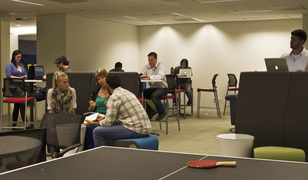 A look inside Catapult's shared office space
A look inside Catapult's shared office space Kelsey: We look for companies with demonstrated business traction - funding, employees, user acquisition, paying customers, etc.- company drive, team dynamics, and what they can contribute to the Catapult community.
Q: Is there a certain industry focus or alignment for companies that are admitted into Catapult?
Catapult companies are primarily tech based and B2B, which is also in part a reflection of the Chicago entrepreneurial/tech scene itself.
Q: What are the most common challenges businesses face as they go through their time at Catapult (product-market fit, growing the team, user acquisition) and how do you help them with such obstacles?
We help companies address all of these issues primarily through 1) Founders Forums: bi-monthly meetings where one founder presents a particular problem and others offer feedback and share their own experience, 2) The Everest Program: An innovative all-access mentoring program that connects Catapult startups to successful digital B2B or B2C companies that have scaled from their own early startup days, and 3) educational programming in which we bring in the sponsors, experts and entrepreneurs that our companies legitimately need at their respective stages of the development. Most companies stay for 18 months, and within that the time span, they often double their team size and raise capital, so the hiring process and raising funds are probably what we see our companies struggle with the most.
Q: Can you talk about the "Peer Selection" element of Catapult. How did the idea come about and what impact does it have on the space?
The peer selection model evolved from the fact that it’s the people within the entrepreneurial scene that always know what’s going on. There’s the typical way of asking investors, analysts, and committees to deem which startups have the potential to scale, but we’ve found that it’s the tech companies themselves who can spot other talented companies that would make innovative additions to the Catapult community.
Q: You've had some very successful companies come through Catapult and a high percentage of graduates are still in business, what do you attribute that to?
Thank you! We’re very proud to share that of the 17 companies that have graduated from Catapult, 88% are still in business and remain involved with the Catapult community. We’re also a small organization (we only have 13 resident companies and 7 associate resident companies), and are geared for later-stage startups which means the chances of our companies going under is significantly less.
Q: Could you talk a bit about the sponsor network and their impact on Catapult and its resident startups?
As a non-profit 501(c)6, our sponsors play a vital role in helping our companies scale. Sponsors are typically forward thinking businesses interested in supporting our mission by providing financial support as well as access to their respective organizations and networks. Basically, our sponsors work more as advisors who provide guidance and expertise to our residents.
Q: Any plans to expand the Catapult model to other cities with large tech/startup scenes?
We’re not in a rush, but there’s definitely talk of taking the Catapult model to other cities.
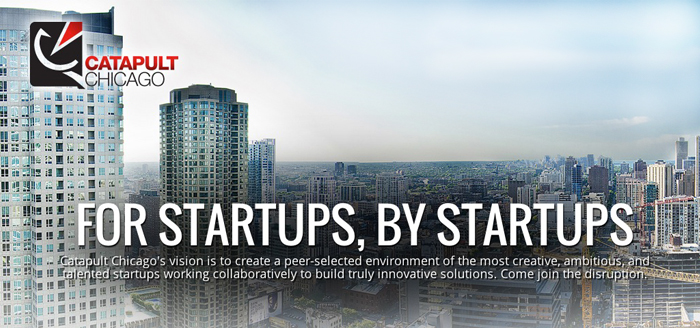

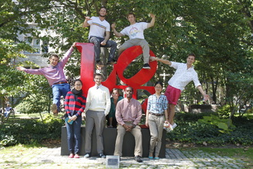
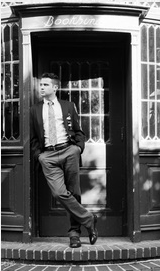
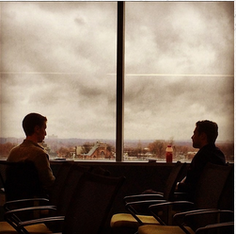
 RSS Feed
RSS Feed
